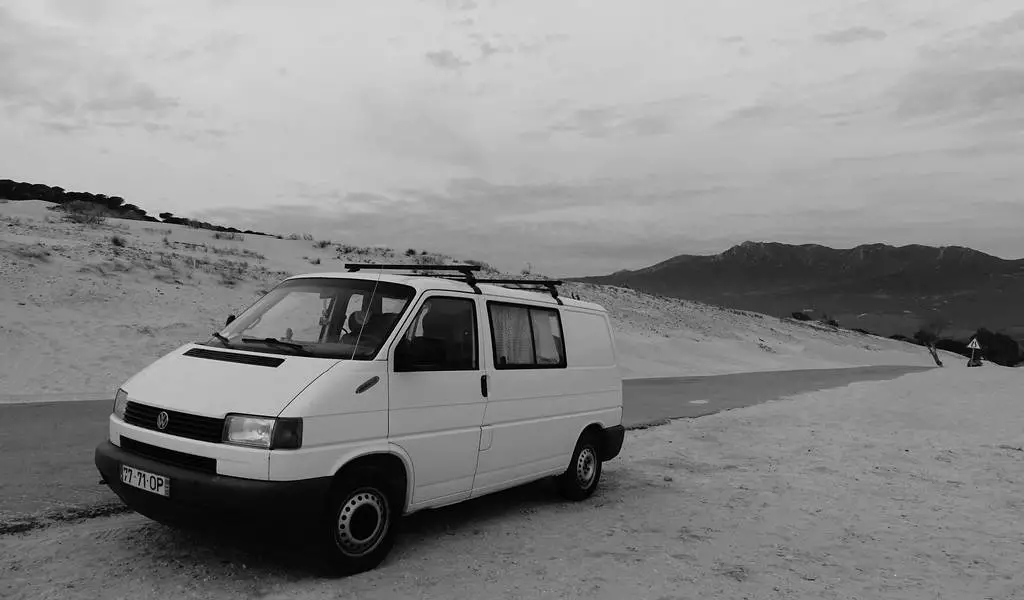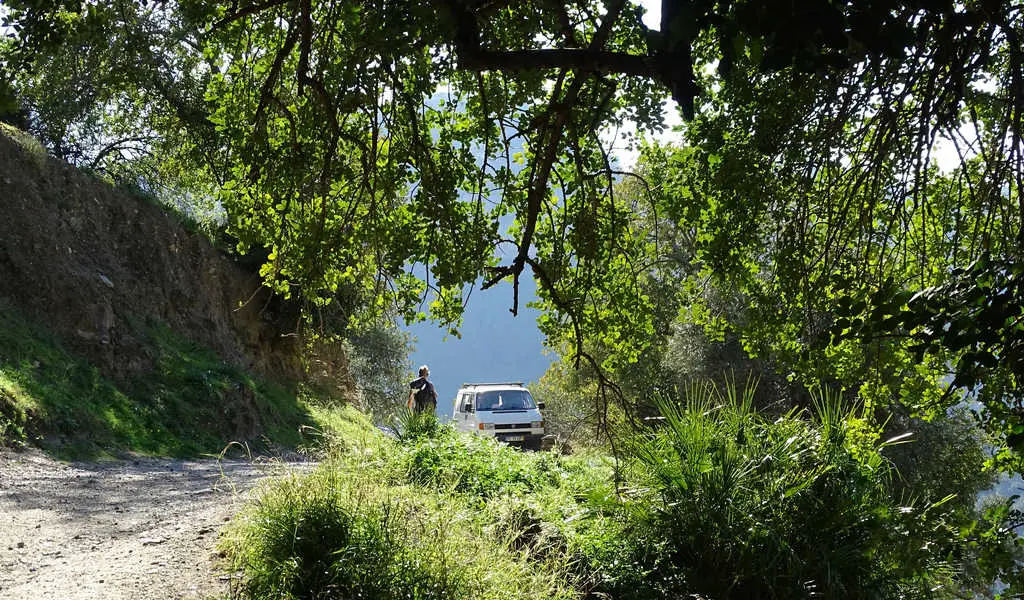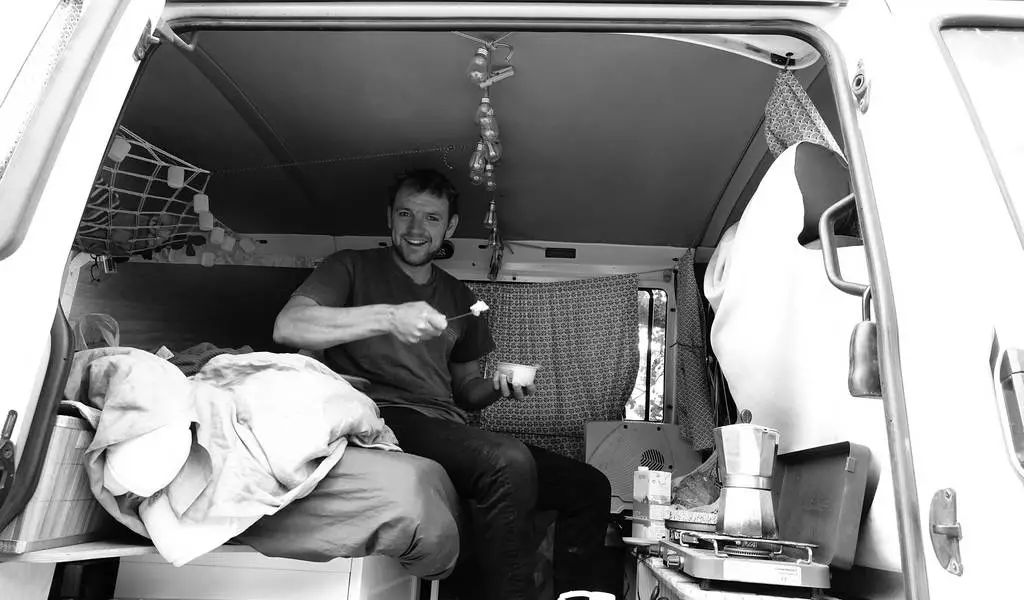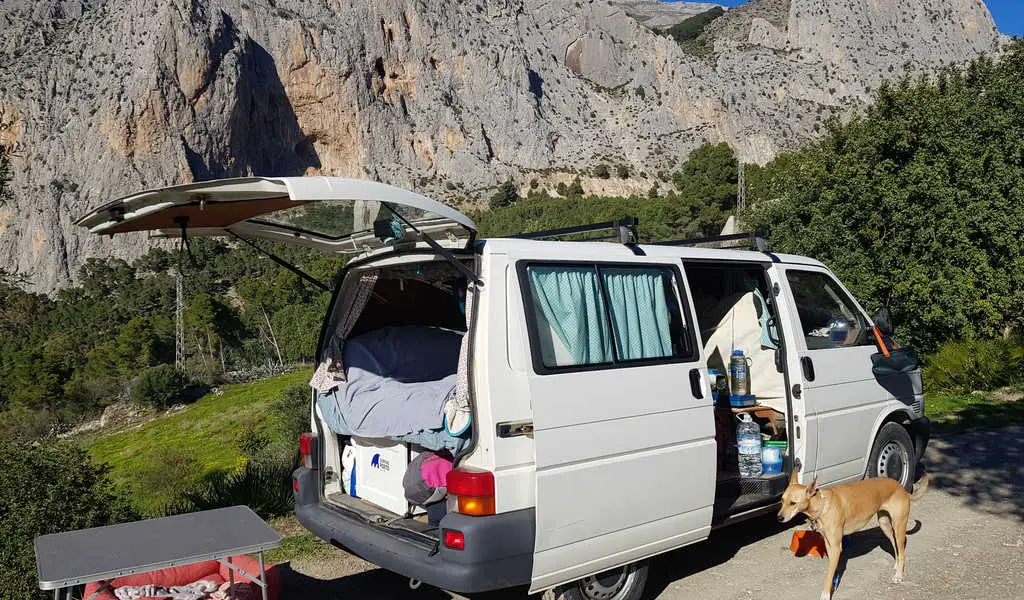As an affiliate I may earn a commission on any qualifying purchases, including those from Amazon, at no extra cost to you.
In 2018, my girlfriend and I bought a Volkswagen Transporter to convert into a camper. As we’re keen rock climbers and surfers it seemed like the ideal solution for travelling to remote locations on a budget with a large amount of equipment and our dog, Sandy.
After a few trial weekends of camping on the beach or in a nearby forest, we decided we were ready to take some time away from work and embark on our first long-term vanlife adventure.
So last winter, after gathering up everything that we thought would come in handy for living out of a van, we took off for Andalusia on a three-month climbing trip.
South-western Spain is not only less crowded, but still gets incredible weather during the winter months; it’s relatively dry and when the sun’s out it can feel like a summer’s day in the UK.
Andalusia has everything to offer from beaches to mountains, great cities with beautiful architecture and arguably the nation’s best tapas.
Our journey took us touring through the South of Spain, from the stunning mountain range of El Chorro to the bustling weekend food markets in Granada and from the long sandy beaches surrounding Tarifa to the backstreet taperias in Seville and Marbella.
During our trip we gained a wealth of knowledge about what it takes to live full time in a van.
RELATED: How to Convert a Van in to a Camper Van

The Pros and Cons of Van Life.
If you’re serious about changing your travelling habits and committing to life in a van, there’s a world of benefits waiting to be taken advantage of.
However, it’s all to easy too fall into the trap of thinking vanlife is a breezy, bohemian and alternative lifestyle.
Don’t be fooled by those increasingly popular #vanlife Instagram posts that make van dwelling appear glamorous – it’s really not, especially in a smaller van.
The Pros
If you’re willing to make a few sacrifices, the benefits of living in a van are numerous:
- Freedom
With a van you’re free to sleep wherever you want as long as it’s got road access. There’s no greater satisfaction than waking up, sliding open your door and stepping out onto the beach or going to swim in a lake. Living in a van allows you not only the access, but also the freedom to live in the wild.
- Cost
Once you’ve made the initial spend of buying and kitting out your van, travelling becomes fairly cheap. When you take into consideration how much it costs to stay in a hotel, hostel or guesthouse nightly on a long trip, having a bed in the back of your van pays back in dividends and allows you to easily budget for other things.
- Simplicity
Once you remove yourself from an urban environment and the amenities that it provides, you start to notice the sweeter things in life. Having no phone battery or internet reception becomes completely trivial when you’re living out of a van.

The Cons
Every up has it’s down and it’s crucial to think about the negatives before committing to vanlife travel.
- Comfort
Travelling in a small van limits your indoor space. When the weather’s good it’s not too much of a problem, but imagine being confined to a space in which you can’t fully stand up in if it’s raining.
Pretty tough right? Now imagine sharing that space with another person and a dog who loves nothing more than to stretch out and make herself as comfy as possible.
- Hygiene
if you’re sleeping in remote locations, finding water and access to showers or toilets is going to be limited. Be prepared to go days at a time without a decent, hot shower and make sure you’ve got a strong supply of baby wipes for when water is scarce. Eventually, such privations become routine and manageable but if you’re the kind of person who likes to stay pampered, vanlife can provide a real shock to the system.
- Cooking
Storing and preparing food can be problematic if you’re planning on staying in a remote location for a long period of time. You’re going to need a stock of dry food that won’t spoil (unless you’re lucky enough to have a fridge in your van). Similarly, your methods for cooking are limited to what you can do on a camping stove.
After our first week of eating one-pot meals, we were fortunate enough to meet two Belgian climbers travelling in a renovated Mercedes bus with a fully functioning oven.
They hosted regular pizza nights for the whole car park which gave us a break from the strains of cooking in our much smaller kitchen. Whilst having limited resources for cooking may seem problematic, it can be advantageous as it forces you to become more inventive and try out new recipes.

Essentials for Living in a Van.
We’ve all got things that we can’t live without but deciding what to take on a van trip can prove tricky. Ensuring you keep your van safe and utilising storing space is key when carrying out your conversion.
Beneath the bed in our van is our main storage area; there’s a safe for storing cash, laptops, passports and any other valuables but the majority of space is taken up by cumbersome gear we use for our hobbies – climbing ropes, slacklines, snorkels and fins. Aside from these items, there are things that you really rely on when living in a van.
Despite all the preparations we made for our trip, there were still things that we didn’t have that we soon realised were essential. Here’s a rundown of the things that made our van adventure more convenient:
- Camping chairs – in a small van it gets pretty cramped, so a sturdy camping chair is a godsend. You can stretch out and read a book or take in a great view and really relax. Don’t scrimp when it comes to choosing a chair – you really can’t put a price on comfort when you’re miles away from a sofa. It’s also important to make sure you find one that folds away neatly for storage.
- Head torch / clip-on LED – there’s nothing worse than waking up in your van in the middle of the night to use the toilet and stumbling around in the dark to find an appropriate spot to go. Having a head torch handy is going to save you so much hassle in a number of situations. Clip-on LED’s are also essential – they’re cheap, compact and can be charged with USB cables. Generally they have great battery life anyway so you won’t need to charge them regularly.
- Lighters – you’re going to need a good wind-proof lighter to hand for igniting your stove whenever you want to cook or fancy a brew. Make sure you store them somewhere secure or tie them to something solid – we found this out the hard way when a lighter managed to roll underneath our stove before exploding and almost setting our van alight.
- Pressure shower – this is one of the things that we didn’t have but soon wished we had. You can buy portable showers that store up to 15 litres of water and, with the help of a foot pump, act very much like a normal shower. It’s a good investment and saves you having to search out a local swimming pool every time you need a shower.
- Books – one of the most wonderful things about living in a van is the free time you have on your hands. On our three-month trip, I read more books than I normally would do in a whole year.

How Much Money Can You Save Living in a Van?
If you’re willing to live simply and remotely, you’ll be able to reap the financial rewards of travelling long term in a van. For one, you won’t have to pay for accommodation so that’s an immediate, daily saving.
The rest come down to your lifestyle and the amount of distance you cover in your van; the further and more often you move, the more you’ll spend on fuel.
Our strategy to keep our van travels cost effective is to live fairly frugally while we’re climbing or surfing in remote places and then, when visiting cities, we’re free to enjoy the finer things in life – if you live in the wild for a few weeks you’ll save enough to eat out regularly and stay for a few nights in a city centre hotel or Airbnb (but remember to pay for secure parking for your van – after all, it’s your home).
Final Thoughts
Van life isn’t for everyone. There are so many factors to take into account when planning a trip that don’t get considered when booking any other holiday.
It takes patience and fresh approach to a lot of things that we normally take for granted, but if you’re willing to make a few sacrifices here and there and let yourself go with the flow, vanlife is the life for you.


![Read more about the article How to Convert a Van Into a Camper Van [with photo diary]](https://gotmybackpack.com/wp-content/uploads/2020/05/Van-Conversion-Featured-300x225.jpg)
